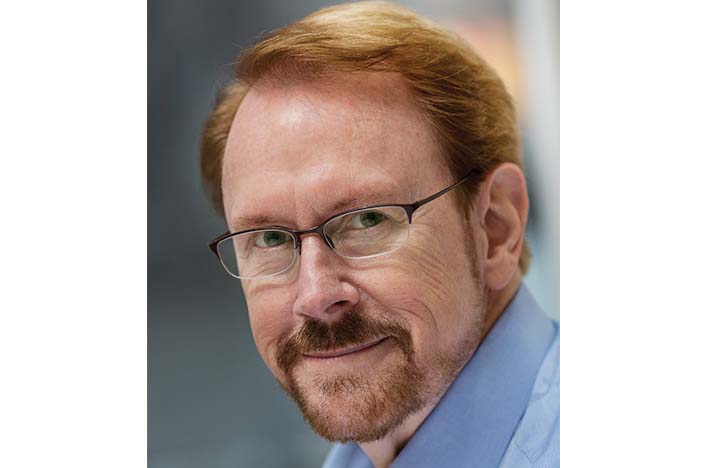Daniel Burrus is one of the world’s leading futurists on global trends and innovations. He’s a strategic adviser who has guided executives from Fortune 500 companies, as well as small and medium- size businesses, to develop paradigm-shifting strategies for capitalizing on amazing untapped opportunities. Burrus himself has started six companies—four were national leaders in the first year, and five were profitable in year one. He is the author of seven books, including The New York Times Bestseller “Flash Foresight”. His latest book, “The Anticipatory Organization”, is already number one on Amazon’s Hot New Books.
Kelly » What is the anticipatory organization?
Daniel » I’m teaching the “great missing competency”—the ability to accurately anticipate problems before you have them so you can pre-solve them and not have them in the first place, and to anticipate disruptions before they disrupt, which allows you to turn disruptions into a choice.
Turning disruption into a choice allows you to create positive disruption and provides much more control. With the pace of change accelerating at an exponential rate, if all we’re doing is being agile—which is reacting quickly to disruption and problems after they happen—the advantage of being agile slips quickly behind us. We need to get out ahead of these changes.
Kelly » How do you identify disruptions and then get out ahead of them?
Daniel » We live in a world filled with uncertainty. Strategy based on uncertainty has high risks. On the other hand, strategy
based on certainty has low risk and high rewards. You can learn to be certain about thousands of things. That’s what I teach in my new book.
I’ve developed a methodology of separating all trends into either Hard Trends and Soft Trends.
Hard trends will happen, guaranteed. They’re based on future facts that cannot be changed. The advantage is that you can see them coming before they happen. Soft Trends are based on assumptions about the future. They’re not a future fact. The advantage of a Soft Trends is that if you don’t like them, you can change them.
There are three categories of Hard Trends: demographics, technology and government regulations. Let’s take demographics, for example. In this country, there are 78 million baby boomers. The Hard Trend is they are going to get older. That future fact allows us to pinpoint some amazing low-risk opportunities that are untapped.
One of the principles I teach is: If it can be done, it will be done— and if you don’t do it, someone else will. This understanding about Hard Trends allows you to identify innovative strategies that will have low risk.
Kelly » Tell us some more about Soft Trends.
Daniel » Soft Trends are based on assumptions about the future, not a future fact. The problem is that many of us think certain things can’t be changed, but they can because it is an assumption that appears to be a future fact. For example, I was recently speaking to 2,000 CEOs in the health care industry. They assumed, like the rest of us, that the trend of increasing health care costs is unstoppable. Once I pointed out that increasing health care costs represents a Soft Trend that can be changed, the CEOs began to see many new opportunities that were invisible to them moments before.
Kelly » How do you determine whether something’s a Hard Trend or a Soft Trend?
Daniel » Ask yourself: Is it impossible to change the trend? If it’s impossible to change it, then it’s a Hard Trend. If it can be changed, it’s Soft. For example, we have a long-running trend of increasing obesity in this country. Is this trend impossible to change? No! It is highly likely to continue, but it’s not a certainty.
The reason I wrote “The Anticipatory Organization” is that if all we do is react to disruptions and problems after they happen, we will not be happy campers on planet Earth. We all need to learn how to be anticipatory and identify and solve problems before they happen, and learn to use rapid change as a force to shape a better tomorrow for ourselves, our families and our businesses.


